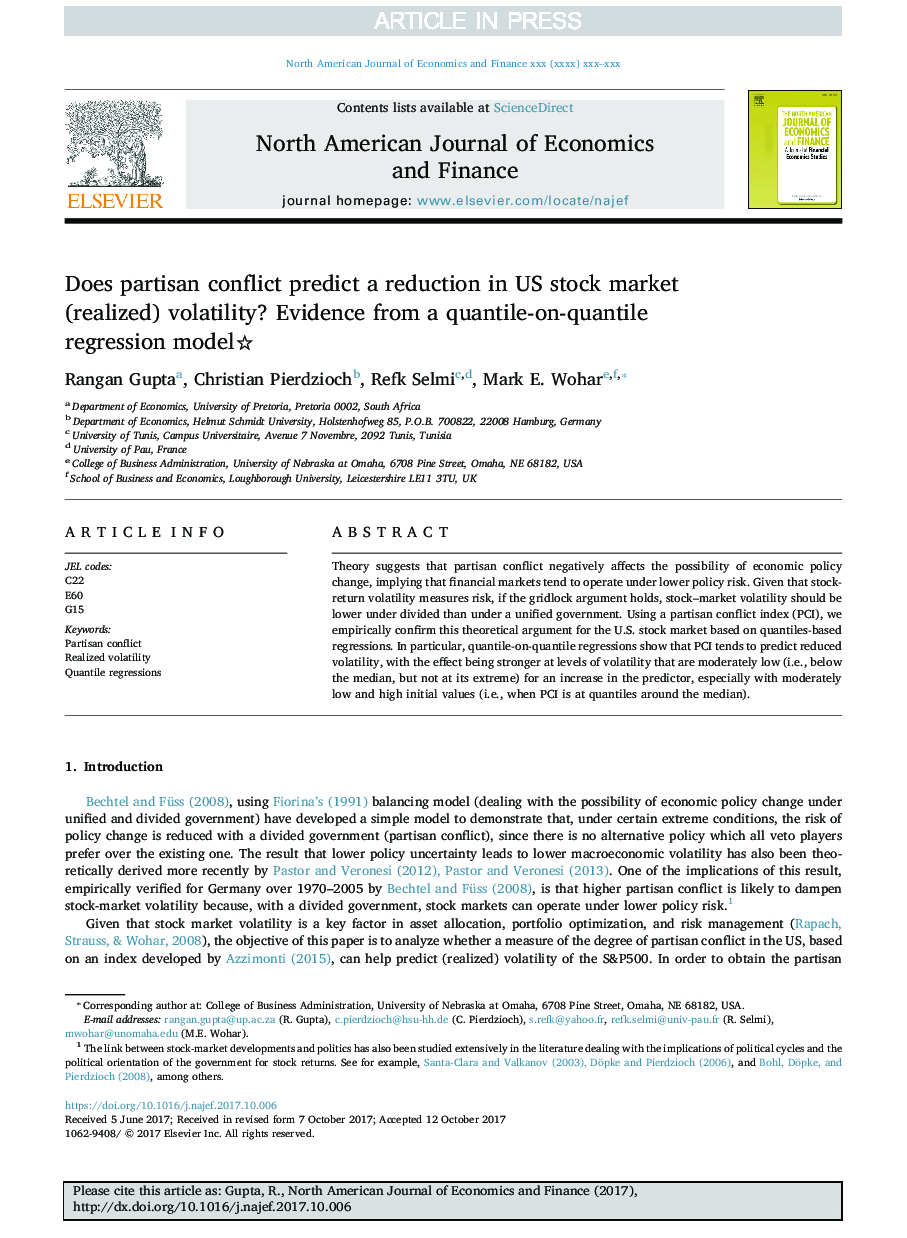| Article ID | Journal | Published Year | Pages | File Type |
|---|---|---|---|---|
| 7373857 | The North American Journal of Economics and Finance | 2018 | 10 Pages |
Abstract
Theory suggests that partisan conflict negatively affects the possibility of economic policy change, implying that financial markets tend to operate under lower policy risk. Given that stock-return volatility measures risk, if the gridlock argument holds, stock-market volatility should be lower under divided than under a unified government. Using a partisan conflict index (PCI), we empirically confirm this theoretical argument for the U.S. stock market based on quantiles-based regressions. In particular, quantile-on-quantile regressions show that PCI tends to predict reduced volatility, with the effect being stronger at levels of volatility that are moderately low (i.e., below the median, but not at its extreme) for an increase in the predictor, especially with moderately low and high initial values (i.e., when PCI is at quantiles around the median).
Related Topics
Social Sciences and Humanities
Economics, Econometrics and Finance
Economics and Econometrics
Authors
Rangan Gupta, Christian Pierdzioch, Refk Selmi, Mark E. Wohar,
